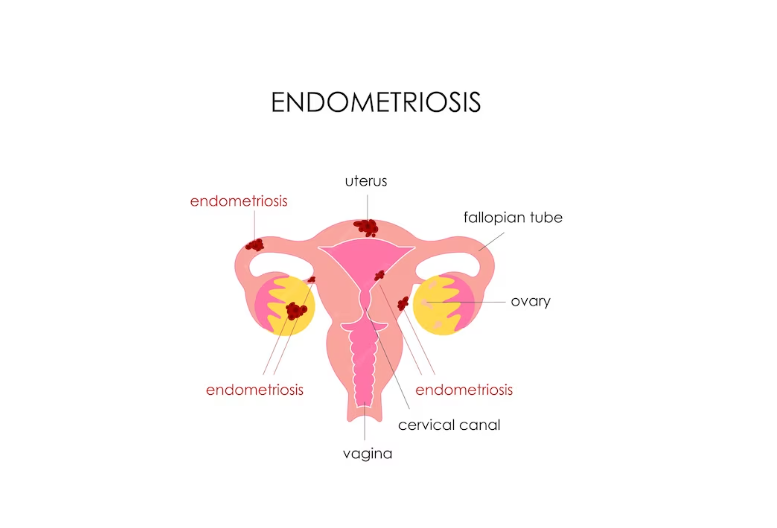
06 Jan Endometriosis Awareness: Managing Symptoms and Fertility Concerns
Endometriosis, a chronic condition affecting millions of women worldwide, presents various challenges in managing symptoms and fertility concerns. Dr. Usha M Kumar, esteemed as the best doctor for endometriosis, sheds light on this often misunderstood condition, exploring its impact, symptoms, and approaches to managing both symptoms and fertility.
Understanding Endometriosis
Endometriosis is a condition in which tissue similar to the lining of the uterus (endometrium) grows outside the uterus, commonly affecting the pelvic area. This misplaced tissue responds to hormonal changes during the menstrual cycle, leading to inflammation, pain, and the formation of adhesions or scar tissue.
Symptoms and Impact
Symptoms of endometriosis vary among individuals but commonly include pelvic pain, painful periods (dysmenorrhea), heavy menstrual bleeding, pain during intercourse, and infertility. Dr. Usha M Kumar emphasizes the significant impact of these symptoms on daily life, relationships, and emotional well-being, urging for early recognition and intervention.
Diagnosis and Treatment Approaches
Diagnosing endometriosis involves a thorough medical history, pelvic examination, imaging tests, and often laparoscopic surgery for definitive diagnosis. Treatment aims to manage symptoms and improve quality of life:
- Pain Management: Nonsteroidal anti-inflammatory drugs (NSAIDs), hormonal therapies (like birth control pills), and nerve-blocking medications help alleviate pain associated with endometriosis.
- Surgical Intervention: Laparoscopic surgery to remove endometrial tissue, adhesions, or cysts can provide relief and improve fertility prospects in certain cases.
Fertility Concerns and Management
Endometriosis can significantly impact fertility. Dr. Usha M Kumar discusses various approaches to manage fertility concerns:
- Fertility Treatments: Assisted reproductive techniques like in vitro fertilization (IVF) or intrauterine insemination (IUI) may help women with endometriosis conceive.
- Laparoscopic Surgery: Surgical removal of endometrial implants and scar tissue can enhance fertility by improving reproductive organ function.
- Hormonal Therapy: Suppressing ovulation temporarily using hormonal treatments may alleviate symptoms and improve fertility prospects.
Coping Strategies and Support
Coping with endometriosis involves adopting healthy lifestyle habits, managing stress, and seeking emotional support. Dr. Usha M Kumar underscores the importance of support groups, counseling, and education to empower individuals navigating this challenging condition.
Advocating for Awareness and Research
Raising awareness about endometriosis is crucial for early diagnosis, effective management, and research advancements. Dr. Usha M Kumar’s expertise highlights the need for continued research to better understand the condition, improve diagnostics, and develop more targeted treatments.
Conclusion: Empowering Women with Knowledge
Endometriosis is a complex condition that significantly impacts women’s health and fertility. Dr. Usha M Kumar’s insights underscore the importance of education, early intervention, and comprehensive management strategies in addressing symptoms and fertility concerns associated with endometriosis.
In conclusion, fostering awareness, seeking early diagnosis, and adopting comprehensive approaches to managing symptoms and fertility concerns are pivotal in supporting individuals affected by endometriosis. Dr. Usha M Kumar’s expertise advocates for empowerment through knowledge, support, and continued research in the field of endometriosis.




Sorry, the comment form is closed at this time.